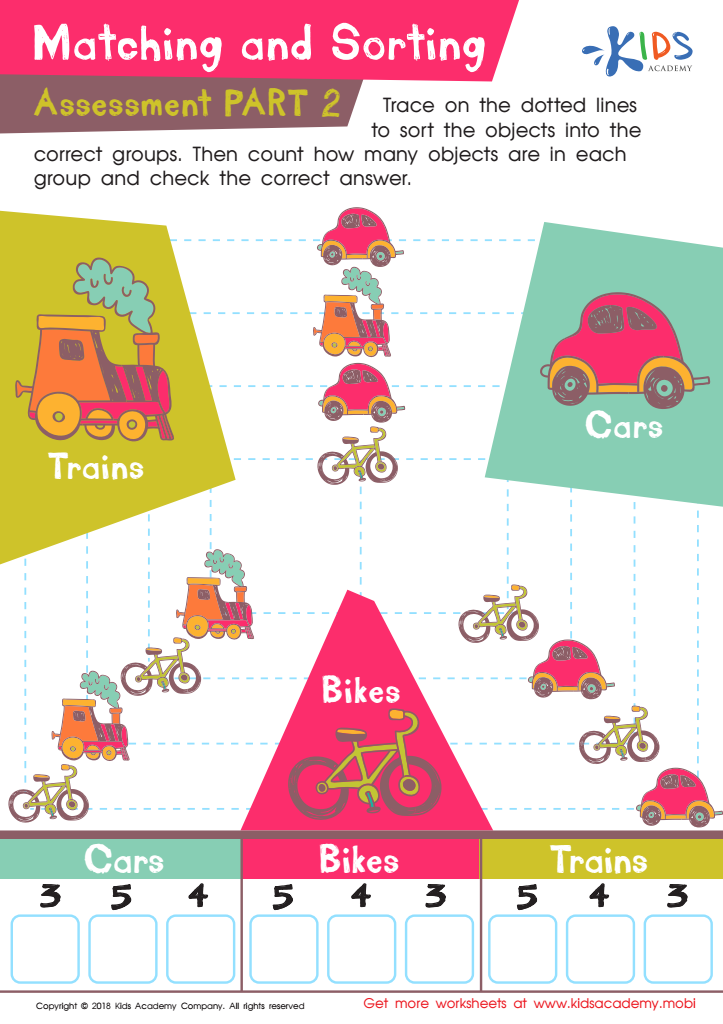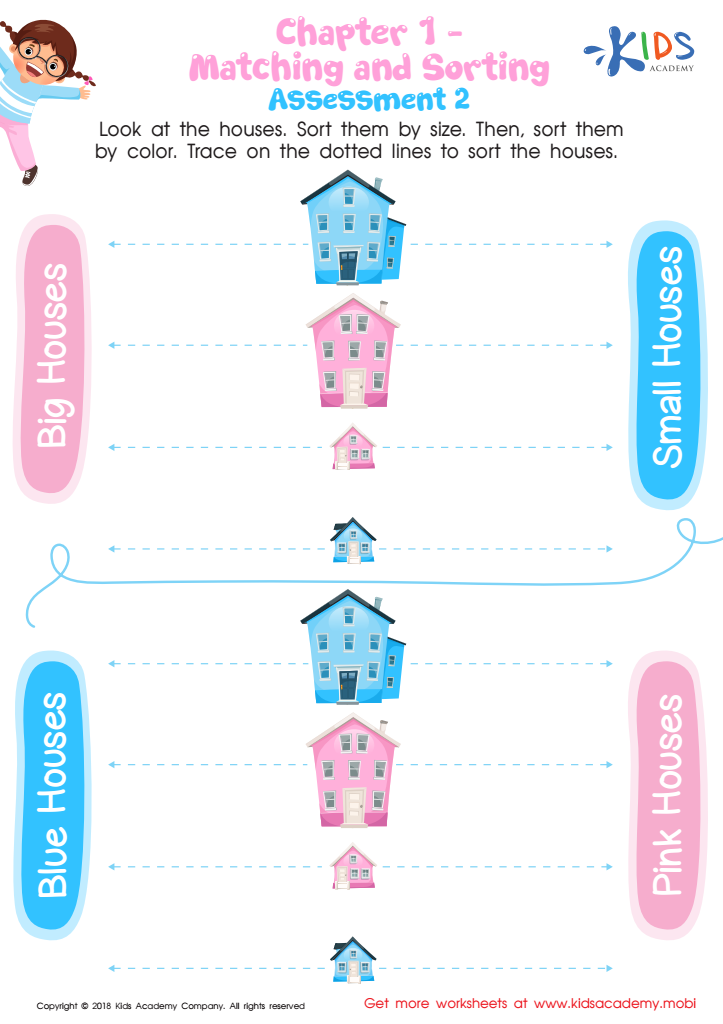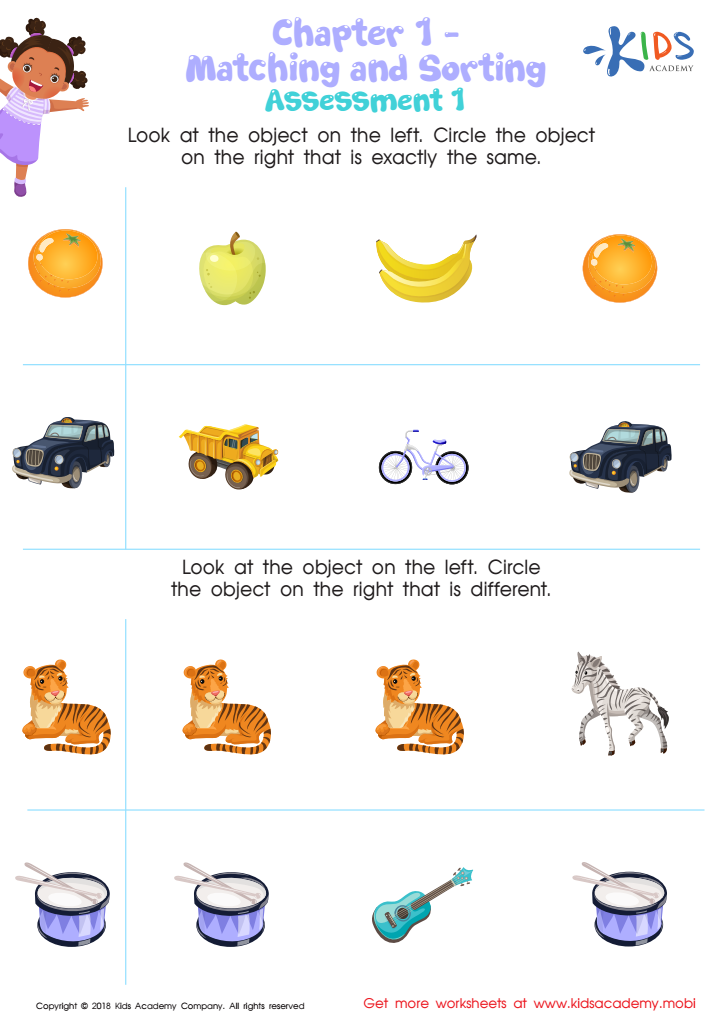Comparing Fractions Sorting Worksheets for Ages 5-8
3 filtered results
-
From - To
Discover our engaging Comparing Fractions Sorting Worksheets tailored for children ages 5-8. These worksheets are designed to make learning about fractions fun and interactive. Young learners will develop essential math skills by sorting and comparing different fractions through hands-on activities. Each worksheet encourages critical thinking, improves visual recognition, and enhances problem-solving abilities. With colorful illustrations and kid-friendly designs, our worksheets captivate students' interest while promoting learning. Whether used in the classroom or at home, these resources are ideal for building a strong mathematical foundation. Explore our collection and watch your child's confidence in comparing fractions grow!


Matching and Sorting for Kindergarten: Assessment 2 Worksheet


Matching and Sorting for Preschool: Assessment 2 Worksheet


Matching and Sorting for Preschool: Assessment 1 Worksheet
Comparing fractions is a fundamental math skill that has significant implications for a child's understanding of numbers and quantitative reasoning. For parents and teachers of children ages 5-8, engaging in activities like comparing fractions sorting is vital for several reasons.
First, it builds a strong foundation in understanding quantities and ratios, establishing essential skills needed for more complex math concepts in later grades. Fractions represent parts of a whole, and comparing them helps children grasp the idea of equivalency and proportionality, which are crucial for everyday life.
Second, sorting fractions serves as an interactive, hands-on learning experience that can make abstract concepts more tangible. Children learn by doing, and activities like these keep them engaged and motivated.
Moreover, mastering fractions promotes critical thinking and problem-solving skills. As children determine which fractions are larger or smaller, they enhance their analytical abilities—a cornerstone of future academic success.
Finally, working on comparing fractions provides an excellent opportunity for parents and teachers to foster a positive attitude towards math. By participating in these learning experiences together, adults can instill confidence in children, encouraging them to embrace challenges and view math as an exciting subject rather than a daunting task.

 Assign to My Students
Assign to My Students
















